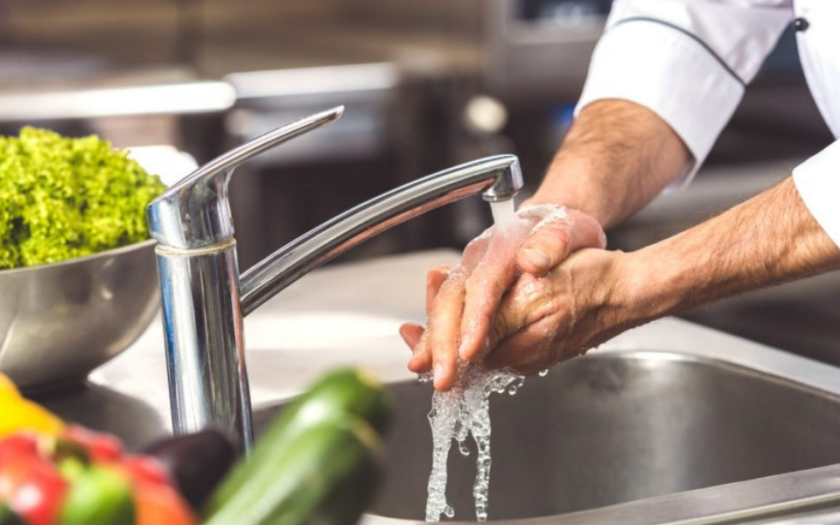Food safety involves knowing how to buy, prepare, and store food to prevent the spread of harmful bacteria that cause foodborne illnesses like Salmonella and E. coli.
General Safety Tips
- Handwashing: Always wash your hands with warm water and soap before handling food and after touching raw meat, poultry, fish, or eggs.
- Separate raw and cooked foods: Use separate cutting boards, utensils, and plates for raw and cooked foods to avoid cross-contamination.
Buying Food
- Place refrigerated items (like meat, dairy, eggs, and fish) into your cart last. Keep them separate from produce and other ready-to-eat items.
- If your drive home exceeds an hour, consider using a cooler to keep items fresh.
- Check the expiration date on packaged meat, poultry, and fish. Avoid buying items with strange smells or appearances, even if still within the expiration date.
- Check eggs for cleanliness and cracks before purchasing.
Avoid buying:
- Fruit with damaged skin
- Unpasteurized ciders or juices
- Pre-stuffed fresh poultry
Refrigerating and Freezing
- Set your fridge to 40°F (5°C) and your freezer to 0°F (–18°C) to keep food safe. Use a thermometer to monitor the temperature.
- Store eggs in their original carton on a shelf, as refrigerator doors are often too warm.
- Keep meat, poultry, and fish in separate plastic bags to avoid their juices contaminating other foods.
- Freeze meat, poultry, or fish if they won’t be consumed within a few days.
- Storage of deli meats: Unopened packages can last up to two weeks, but once opened, consume hot dogs within 1 week and deli meats within 3–5 days.
Preparing and Cooking Fruits & Vegetables
- Cut away damaged sections of produce before washing or eating.
- Wash all fruits and vegetables under running water to remove dirt, pesticide residue, and bacteria. Scrub firm produce with a clean brush.
- Always wash melons before cutting to prevent bacteria transfer from the rind to the inside.
- Dry produce with a clean towel or paper towel.
Preparing and Cooking Raw Meat, Poultry, Fish, and Eggs
- Avoid washing raw chicken, as this spreads bacteria around the kitchen.
- Thaw frozen meats in the fridge or microwave, not at room temperature, and cook them right after thawing.
- Marinate meat, poultry, or seafood in the fridge and discard any leftover marinade.
- Cook meat thoroughly:
- Ground beef or poultry: No pink should remain.
- Eggs: Cook until yolks and whites are firm; scrambled eggs should not be runny.
- Avoid raw egg dishes like uncooked cookie dough or homemade eggnog. Use pasteurized eggs if a recipe requires raw eggs.
Use a meat thermometer to ensure food is cooked safely:
- Poultry (whole, pieces, and ground): 165°F (74°C)
- Steaks, roasts, and chops: 145°F (63°C), with a 3-minute rest period
- Ground beef, veal, pork, and lamb: 160°F (71°C)
- Fish: 145°F (63°C)
- Egg dishes: 160°F (71°C)
- Leftovers: At least 165°F (74°C)
Cleaning Up
- Surface cleaning: Wipe down countertops with warm, soapy water.
- Use hot, soapy water or a dishwasher to clean plates, utensils, and cutting boards.
- Towels and dishrags: Opt for thinner dishrags that dry more quickly, and wash them often. Paper towels are a good alternative for preventing the spread of bacteria.
- Cutting boards: Replace old boards with deep grooves, as these can harbor bacteria.
- Regularly sanitize cutting boards, countertops, sinks, and garbage disposals.
Leftover Storage
- Refrigerate leftovers within 2 hours of cooking.
- Consume leftovers within 3–4 days or discard them.
For more safety information, including storage times and safe minimum cooking temperatures, visit FoodSafety.gov.



